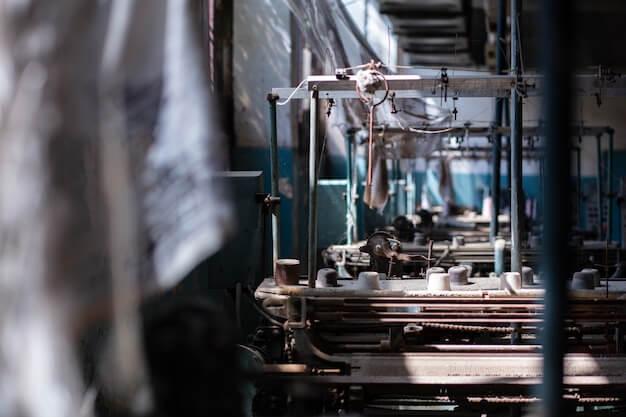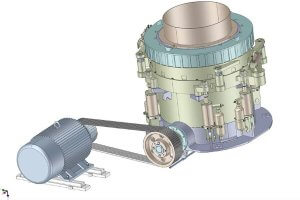CNC Machining: A Vital Component in Custom Tooling
Computer Numerical Control (CNC) machining is a subtractive manufacturing technology that employs computers to control machine tools. This includes lathes, mills, routers, and grinders, which are automated using precisely programmed commands. The significance of CNC machining in custom tooling cannot be overstated as it serves diverse sectors including aerospace, automotive, electronics, medical devices, plastic injection molding, among others.
The process often starts with 3D models from CAD software being converted into a set of numerical instructions—the G-code—that the CNC machinery recognizes. With the aid of CNC Machining:
- High level of precision and accuracy can be achieved irrespective of the material used — Tool Steel or Carbide.
- Intricate geometric designs can be replicated repeatedly without variance.
- Design modifications can be swiftly executed bringing efficiency to prototyping or production runs.
Its flexibility and scalability makes it immensely significant in creating bespoke parts, molds, dies, fixtures, and other crucial components in custom tooling, thereby enhancing productivity while minimizing wastage.
Basics of Custom Tooling
In the realm of modern-day manufacturing, custom tooling plays an integral role in streamlining production processes and improving product quality. Central to this process are the materials used in developing these custom tools, particularly carbide and tool steel. Both materials offer a unique blend of characteristics that make them suitable for different applications within manufacturing environments.
- Carbide: This material is known for its hardness and durability, making it perfect for high-volume production runs where the tool will be subjected to continuous use without significant wear or deformation.
- Tool Steel: Tool steel, on the other hand, is valued for its versatility and relative ease of machining. It can withstand high temperature variations, a major advantage when executing rapid heating and cooling cycles typical in injection molding procedures.
Choosing between carbide and tool steel often hinges on specific requirements of the custom tooling project, including production volume, complexity of design, precise detailing needed, and budget constraints. Nevertheless, leveraging the strengths of both materials can pave the way towards optimal efficiency and output quality in any manufacturing endeavor.
Deep Dive into Tool Steel for Custom Tooling
When it comes to custom tooling in CNC machining, tool steel is a popular choice due to its desirable properties and durability. Here are some key points to consider:
What is Tool Steel?
Tool steel is a group of steels that contain various carbon and alloy elements, such as tungsten, vanadium, cobalt, and molybdenum. These elements enhance the heat resistance and durability of the steel, making it suitable for manufacturing custom tools.
Advantages of Tool Steel for Custom Tooling:
- Heat Resistance: Tool steel can withstand high temperatures without losing its hardness and strength. This makes it ideal for tools that are subjected to intense heat during machining processes.
- Durability: Tool steel is known for its exceptional durability, allowing custom tools to withstand heavy use and prolonged machining operations.
- Machinability: Tool steel is relatively easy to machine, making it suitable for creating complex custom tooling designs.
- Cost-Effectiveness: Compared to carbide materials, tool steel is generally more cost-effective, making it a preferred choice for custom tooling projects with budget constraints.
Applications of Tool Steel in Custom Tooling:
Tool steel is widely used in various custom tooling applications, including:
- Cutting Tools: Tool steel is commonly used for manufacturing cutting tools such as drills, end mills, and inserts. Its hardness and wear resistance make it suitable for achieving precise cuts and prolonged tool life.
- Forming Tools: Tool steel is also used for creating forming tools like dies and punches. Its durability and ability to withstand high pressures make it ideal for shaping and forming operations.
- Mold Tools: In injection molding and die casting processes, tool steel is used to create molds that can withstand the high temperatures and pressures involved.
By utilizing tool steel for custom tooling, manufacturers can benefit from its heat resistance, durability, and cost-effectiveness. To explore CNC machining services that offer expertise in custom tooling using tool steel, you can visit our online CNC service.
Understanding Carbide for Custom Tooling
Carbide, often used in custom tooling manufacturing, is a compound comprised of carbon and other less electronegative elements. Renowned for its strength and durability, this material is prime for use in situations where wear resistance is critical – an example of such would be drill bits, which are faced with heavy pressure during drilling processes and hence greatly benefit from the hard-wearing characteristics of carbide.
- Definition & Characteristics: Essentially, carbides are known for their hardness, stiffness, and resistance to damage. Their rigid nature makes them ideal for high pressure, high-temperature environments where they outperform softer materials like tool steel.
- Benefits: The use of carbide in custom tooling brings about numerous advantages which include enhanced lifespan due to reduced wear rates, improved performance resulting from exceptional hardness and rigidity, as well as cost efficiencies derived from minimal maintenance requirements.
- Difficulties: While the benefits are apparent, the use of carbide is not without challenges. Its inherent hardness can make it brittle, causing breakage issues if not handled carefully. Additionally, machining carbide necessitates specialized equipment and knowledge, potentially increasing initial setup costs.
Comparing Robustness & Longevity: Tool Steel versus Carbide
CNC machining for custom tooling often brings up the question of material selection. In most instances, the choice is between tool steel and carbide. Both materials offer robustness but differ significantly in their longevity. Tool steel has a solid reputation for its hardness and ability to resist abrasion thus ensuring prolonged life when used appropriately. Carbide on the hand, although slightly more brittle than tool steel, offers remarkable durability under high-temperature conditions. Therefore, it tends to last longer when dealing with hard materials or aggressive cutting speeds.
Versatility and Adaptability
In terms of versatility, carbide outperforms tool steel owing to its ability to retain hardness at very high temperatures, making it an excellent choice for projects requiring fast machining of hard materials. Additionally, carbide tools allow for higher feed rates thereby increasing productivity. Nonetheless, tool steels are more adaptable due to their shock resistance properties hence suited for situations where the workpiece might be subjected to side loads, vibrations, or impacts that could fracture carbides.
Situation-Based Preference: Choosing Between Tool Steel and Carbide
- When precision is essential such as in tight tolerance applications, carbide because it maintains sharp edges over long periods.
- If your project involves shock loading or any unexpected forces during machining, tool steel would be best due to its toughness.
- If you’re doing high-speed machining especially with difficult-to-machine materials, then carbide would likely be the preferred option given its heat-resistant characteristic.
Overall, both materials will serve CNC machining well with each having unique advantages depending upon specific application requirements.
The Future of Custom Tooling – Opportunities and Challenges
In the ever-evolving world of CNC machining, current trends reveal a consistent shift towards stronger and more resilient materials. At present, tool steel and carbide represent two such dominant raw material choices showcasing unparalleled strength, durability, and precision in custom tooling applications.
Nonetheless, with continual research and technological advancements, future innovations could yield even better options. The scope for improvement lies particularly within the domains of increasing toughness, enhancing thermal resistance, and reducing wearing rates —three key challenges that lie ahead for the industry.
To give an example, nanotechnology shows promising prospects in combating these issues. This technology can engineer microscopic structures on cutting tools to exhibit superior traits, including greater hardness and heat resistance. Although still in its nascent stage of development, extensive research is underway to perfect this technique and implement it on a larger scale, potentially revolutionizing the world of custom tooling.
Apart from introducing new materials or refining existing ones, another emerging trend worthy of note involves integrating intelligent systems into CNC machines to improve their performance. For instance, incorporating AI-powered predictive maintenance algorithms could help minimize downtime and extend lifespan of the tools, addressing yet another profound challenge faced today.
In summary, while many opportunities beckon promising solutions, they come coupled with significant challenges making navigating the future growth trajectory of custom tooling both exciting and complex.
Other Articles You Might Enjoy
- Tool Steel Grades for CNC Machining: A Comprehensive Comparison
Introduction to Tool Steel in CNC Machining CNC (Computer Numerical Control) machining denotes a process employed in manufacturing where pre-programmed computer software manages the movement of factory machinery and tools.…
- Tool compensation in CNC machining, our quest for precision in CNC machining
Introduction to CNC Machining and Precision CNC (Computer Numerical Control) machining stands at the forefront of modern manufacturing, utilizing computerized controls to operate complex machinery with remarkable accuracy. This process…
- Aluminum CNC Machining Service for Custom Parts
Aluminum CNC machining stands at the forefront of modern manufacturing, epitomizing precision, versatility, and efficiency. With its widespread applications across industries ranging from aerospace to automotive and beyond, aluminum CNC…









